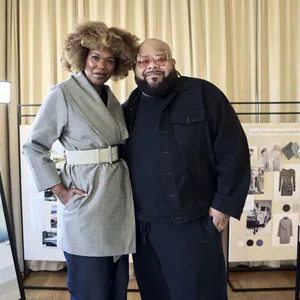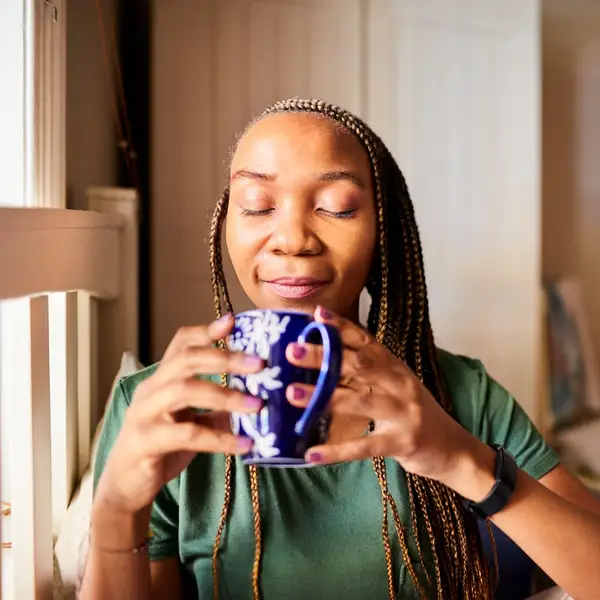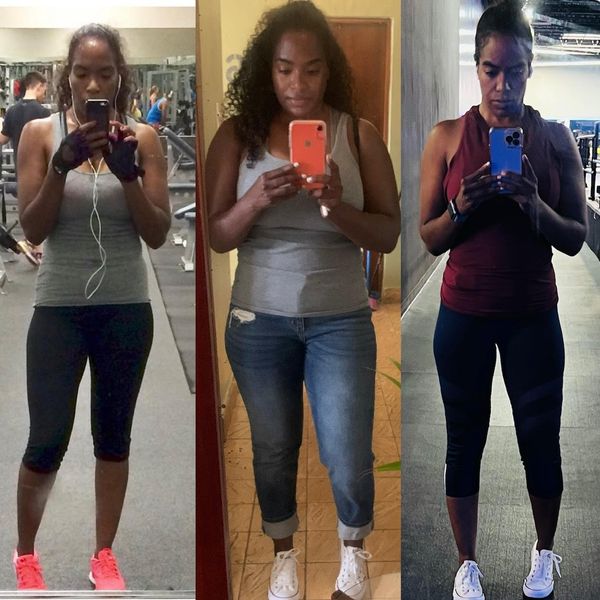Perfection by definition is the condition, state or quality of being free from all flaws or defects. And by example, perfection takes different forms. The perfect body. The perfect career. The perfect man/woman. The perfect life.
I can say that for the last few years of my life, I have been on a quest to make myself, my life, and my surroundings---well, perfect.
As a recovering perfectionist, I was once bogged down in every single detail. But now I am learning to accept some things for what they are; right now, in this moment. It has not been easy to overcome my addiction, but one of the major components to my healing has been taking a hard look at all of the things I blocked by insisting that it line up with some ideal picture I carried around in my head and heart.
When I started this inventory, I was surprised at how critical I'd been of everything and everyone in my life but perhaps the most heartbreaking was the way in which I'd lost my faith in the race to come out on top.

Now, I am no one's first lady, deaconess or minister but I once had a relationship with God that I was very proud of.
My faith was unwavering, and my life had a general ease to it that I contributed to my walk with Christ. Prayer was second nature to me and I was generally happy to share God with others. And then, I hit the age of 25. The age that I thought I'd have it all together by. But I looked around and felt helpless. I felt that I had nothing to show for my walk with God and though I believed that he was the vessel for all of my blessings, I saw people who seemed to not know him at all---living the life I dreamed of leading.
I was frustrated, fed up, and disappointed. And thus, started my spiral.
I wanted to hide myself---my not being a finished product could not possibly be attractive to either lovers or friends. I isolated myself and insisted that it was better that I not bring anyone else down to my level. Never mind that I'd run a successful magazine, created work that I was proud of, traveled to some of the places I'd always wanted to see---I wasn't where I thought I should be. So how could I be proud of me? How could I tell someone about God and have them look at my (what I thought was) shipwreck of a life?

And what's more: how could I believe in a God who saw my hard work, passion, and desires, but blatantly ignored them?
Imagine that. Foolishly, I felt like the being that stretched the stars across the sky needed to prove itself to me.
Then I began to attack myself.
Maybe it was me. Maybe I wasn't a good enough woman/friend/daughter/Christian for God to answer my prayers. How could I fix that? And hell, why was God being so hard on me while letting everyone else be imperfect and still get ahead? Why was my life so much harder just because I was flawed and had made mistakes? GOD WAS NOT PLAYING FAIR. But in my usual perfectionist way, I figured I'd fix it.
I would do everything right and force God's hand. 1+1=2 after all, right? If I am crossing every t and dotting every i, then God has to give me what I want. And if he doesn't, then that means I can do more. I can work harder. Pray harder. Volunteer more. Workout more. Eat better. Not have a social life. Prove to Him that I was worthy of his love, blessings, and honor. I'd even pretend to be happy while doing it all because that was the only way God would be pleased with me enough to grant me the desires of my heart. Then, and only then, could I trust God the way I once had.

Because I felt I had to be perfect for anyone, let alone God, to love me---I also felt my life needed to be perfect in order for me to love God.
I was cutting myself off from the very essence of God's ultimate strength: to love me in my imperfections.
To see in me the things that I hate as the most beautiful parts of me---the places in which His love could shine brightest. When I stopped thinking that I had to come to Him, and anyone else, as a finished product---I realized that I was already complete. Not perfect, but indeed, complete. Still growing, still learning and even sometimes still wanting more out of life---but still complete and completely surrounded by God's grace.
Once I realized that me and God were one---working in tandem, not in opposition---I could hold myself accountable in helpful ways and do away with things that reduced me to "not good enough" at the hands of my own criticisms. I could go after self-improvement for the sake of personal growth that was not dependent on God giving me what I want but what He knows I need at every junction.

I learned to rejoice in small beginnings and trust my journey as mine and mine alone. And most importantly, when I threw off my ego and emotions, I was able to get really honest about whether or not I was actually ready for a lot of the things I'd been praying for.
I was not. But, sometimes God protects us with small no's so that we don't make a mess of the big yes's that are coming our way. So, I let go. And you know what?
My life glowed up.
Things I hadn't thought to ask for blessed me in ways I couldn't have imagined. I was happy again; however, not due to any circumstances changing significantly, but from a joy unshakeable. You know that old folks saying: the world didn't give, and the world can't take it away?

Well, in this case, the world wasn't my biggest enemy, I was. I believed all the lies my anxiety and fears told me about God's limited ability to love me, you, him, her, them…without us being completely flawless. I almost let my quest for perfection, which is really just another mask our ego tells us to wear, keep me away from the most important relationship I will ever have.
Almost.
xoNecole is always looking for new voices and empowering stories to add to our platform. If you have an interesting story or personal essay that you'd love to share, we'd love to hear from you. Contact us at submissons@xonecole.com


























